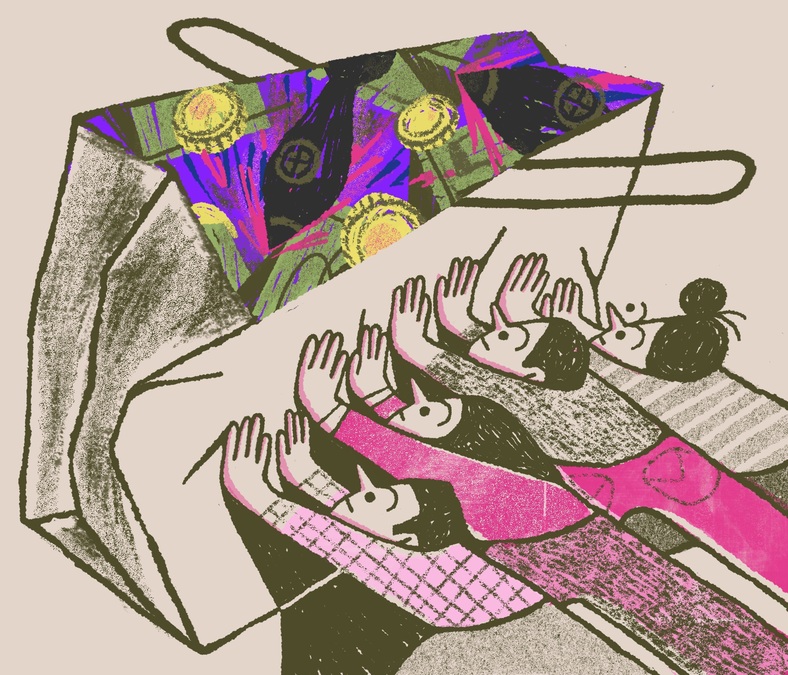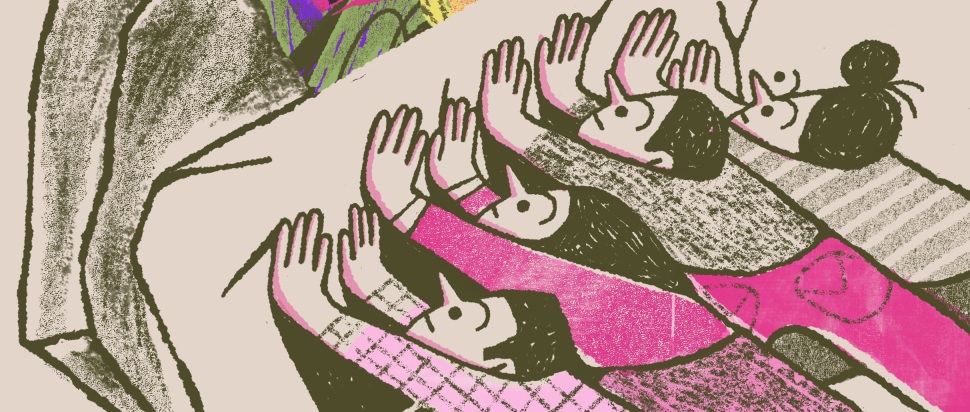Strike for Gaza: Spending Strike Thursdays
Our money matters. We learn more about Spending Strike Thursdays, disrupting capitalist systems, and organising for Palestinian liberation
At the time of writing, it has been two years and 22 days since this iteration of the genocide in Gaza began. One hundred and four Palestinians died yesterday, on 28 October, in a wave of fresh Israeli strikes during a supposed ceasefire that was announced earlier this month. The Guardian reports that the ceasefire looks 'increasingly fragile', bizarre and oxymoronic phrasing that epitomises the complicity of the Western world in facilitating these war crimes.
The weight of this violence is so unbearably, unfathomably huge, that it can sometimes feel difficult to know how to act, or to believe that any action or agency is even possible. It is this sense of paralysis against which the organising group behind Spending Strike Thursdays is attempting to push back. The call for weekly spending strikes – a global economic strike in which participants refuse to spend money on a particular day, pausing all cash and credit transactions – was initiated by the Humaniti Project, a grassroots collective organising for Palestinian liberation. The strike was taken up in Edinburgh by a small group of activists working to encourage their local community and networks to participate.
On Wednesdays, they encourage everyone to plan ahead – make lunch and purchase travel tickets in advance, and reschedule any standing payments and subscriptions. No money is spent on Thursday, and the money saved is then donated directly to crowdfunders for families in Gaza.
“There’s the theoretical impact that this strike could have at a global critical mass – which could be noticeable if even 5% or even 1% of people took part in this – but to me, it’s not even about this theoretical result yet,” says Xuanlin Tham, one of the organisers. Instead, they explain, the strike is a way of beginning to exercise political muscles: practising the acts of collectivism, solidarity, sacrifice and discipline that are necessary for liberation.
“I live in Hackney,” explains Anna McKibbin, who saw the call for the strike and decided to participate within her community in London. "While attending a local protest I learned that Hackney and Stoke Newington were the first boroughs in London to refuse to sell South African goods during apartheid. I found this quote [by] Alderman Leonard Levy, leader of Stoke Newington Council: ‘It is not intended that this should, of its own, have any profound effect in South Africa. But if all authorities of goodwill made similar objections then enough drops might fall on the stone to wear it away.’ Those words have echoed through my head – all of it is meaningful and worth trying!”

Illustration by Vaso Michailidou.
Jan, another of the Edinburgh organisers, agrees that the strike is largely a tool for further action, a way of beginning to awaken political agency. “We can start by asking ourselves: if I can commit to withdrawing my spending for just one day each week, what else is waiting for me if I just try?” she says. “How much am I willing to positively transform my life, divesting from complicity and directly challenging the unacceptable order of this world?”
It is not just individuals who can and should participate. Mairi Oliver, owner of Lighthouse Bookshop, is also participating, encouraging customers not to buy books from the shop or online on Thursdays. “When a call comes from society experiencing genocide and they are saying, ‘We want you to disrupt capital wherever you are’, how could we not answer that call?" she asks. “It wasn't necessarily that we were going to stop the war machine, but in small ways the cumulative effect of people – whether it's showing up to protest or disrupting arms factories or deciding to sacrifice income – is part of a tapestry of tactics that we need to learn to use.”
Capital and Palestine are inextricably entwined – it is only by refusing to participate in the former that we can liberate the latter. “Israel is capitalist necropolitics incarnate,” Tham says. “Weapons are tested on Palestinians and then sold to the US, UK, EU, Singapore.”
“It's pretty clear at this point that all world leaders and arms companies care about is the accruing of wealth and resources,” McKibbin adds. “The US and UK continue to fund the Israeli military as a way of accessing oil in the area and the murder of people is incidental in maintaining these economic interests.”
The spending strike, then, while not an end in and of itself in disrupting these mechanisms of violence, is a way of redirecting social behaviour away from the numbing effects of capitalism and towards the empowering possibilities of collective action. “Humanti have made their strike poster free to download; what if you put it up around campus?” Jan asks. “Alongside the strike, we emphasise the importance of donating to fundraisers the day after the strike, to remind you of the people in Gaza who demand life and who, in turn, teach us life.”
It is, OIiver says, ultimately about practising disruption. “By refusing to contribute to the flow of capital for an entire day,” she says, “we are making clear that there will be no ‘business as usual’ under a genocide.”
